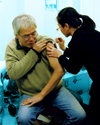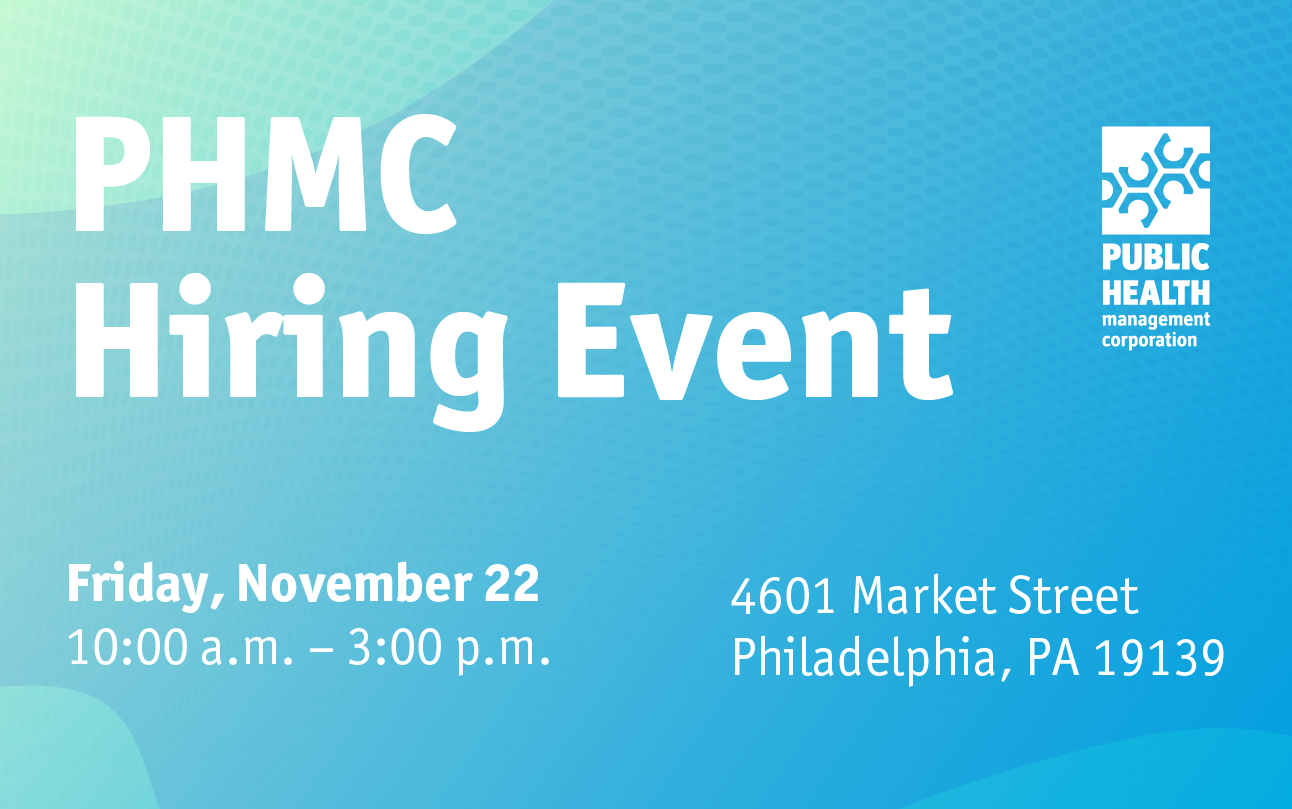 When Americans first started reporting cases of H1N1 in March 2009, government officials swiftly responded. In Pennsylvania, Public Health Management Corporation was on the forefront of the battle against H1N1. PHMC helped coordinate county and regional level emergency preparedness initiatives, collaborated with the Pennsylvania Department of Health to hire emergency preparedness staff and administered the H1N1 vaccine at clinics throughout Philadelphia.
When Americans first started reporting cases of H1N1 in March 2009, government officials swiftly responded. In Pennsylvania, Public Health Management Corporation was on the forefront of the battle against H1N1. PHMC helped coordinate county and regional level emergency preparedness initiatives, collaborated with the Pennsylvania Department of Health to hire emergency preparedness staff and administered the H1N1 vaccine at clinics throughout Philadelphia.
But PHMC’s preparations for H1N1 started long before the virus broke out in the U.S. In March 2008, PHMC launched a regional public health emergency preparedness program with $2.1 million in funding from the U.S. Department of Homeland Security's Urban Areas Security Initiative, through the Pennsylvania Emergency Management Agency and Southeastern Pennsylvania Regional Task Force. This program fosters regional cooperation, coordination and collaboration to prevent, prepare for, respond to and recover from public health emergencies. PHMC’s program, under the direction of the Task Force, helps to expand the capacity of the region’s five counties for mass prophylaxis planning—offering preventive antibiotics or immunization to an entire population in case of bioterrorism or pandemic. The program also assists in planning for deployment of Strategic National Stockpile resources—the Centers for Disease Control and Prevention’s stockpile of antibiotics and other medical supplies.
A coordinated public information response to H1N1 or any public health emergency is essential.”
Last summer, in preparation for H1N1 and the fall/winter flu season, PHMC staff helped organize an H1N1 seminar and tabletop exercise for public health, emergency management and public information officers in the Philadelphia–Camden–Wilmington Metropolitan Statistical Area, which includes four states and 12 counties. “Public information is key to any successful emergency response,” says Nancy De Leon Link, regional public health preparedness coordinator at PHMC. “Given that we share the same media market, a coordinated public information response to H1N1 or any public health emergency is essential.” At the seminar, public health officials shared information on best practices regarding the area’s preparation for H1N1 and discussed how to coordinate public information about the virus. Another tabletop exercise and seminar in September tested the theoretical regional response to H1N1 and related public health situations. This exercise involved private and governmental representatives from the five-county Southeastern Pennsylvania area and helped guide regional coordination for the fall 2009 H1N1 flu season. Additionally, PHMC staff planned and assisted in staffing mass H1N1 clinics and school vaccination campaigns, vaccinating more than 100,000 people throughout the region.
PHMC’s network of health centers also played a vital role in keeping the region healthy during the flu pandemic. The City of Philadelphia awarded a contract to PHMC affiliate National Nursing Centers Consortium to subcontract with seven nurse-managed health centers in Philadelphia to act as walk-in clinics for H1N1 vaccine distribution, starting in November 2009. The sites, including PHMC’s Mary Howard Health Center, Rising Sun Health Center and PHMC Health Connection, provided H1N1 shots to their regular patient rosters and served as walk-in sites for city residents, reaching hundreds of Philadelphians. “It was gratifying to be able to provide such an important service to the community,” says Elaine Fox, vice president of PHMC’s Specialized Health Services component. “The adults and families coming in for immunizations were given seasonal flu shots, H1N1 or pneumococcal vaccinations depending on age and risk factors. Many people wrote or called to express their appreciation for this efficient and friendly service.” The nurse-managed health centers also provided vaccinations to Philadelphians in homeless shelters.
"Many people called to express their appreciation for this efficient and friendly service."
PHMC staff worked with the Pennsylvania Department of Health to assist with H1N1 response and preparation by hiring temporary staff, including epidemiologists and microbiologists for state laboratories that test patient samples for H1N1. Social media also played a part in PHMC’s effort to spread the word about vaccination sites. Consumers who subscribed to PHMC’s Facebook and Twitter pages received updates that informed them of free H1N1 shots available at select locations throughout the region.
Aided by the cooperation and effective communication methods among PHMC and its partners, Pennsylvania’s response to the H1N1 virus helped to stem the spread of a potentially disastrous pandemic and demonstrated the effective role we are prepared to take in future emergencies.
To learn more about PHMC’s public health emergency preparedness program, contact Nancy De Leon Link at This email address is being protected from spambots. You need JavaScript enabled to view it..





